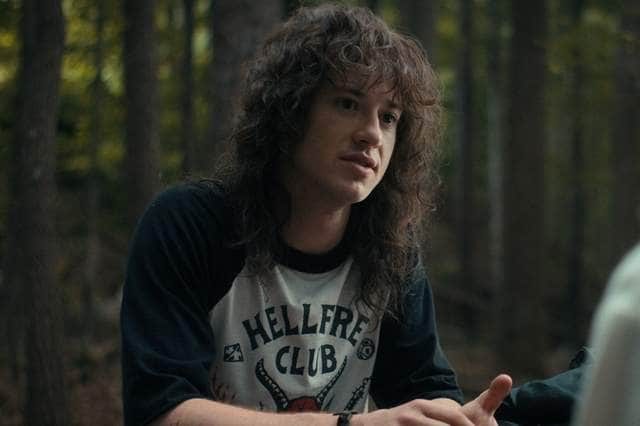Netflix adds immersive new feature - but there's a catch
This article contains affiliate links. We may earn a small commission on items purchased through this article, but that does not affect our editorial judgement.


Netflix is rolling out a new feature which will make some of its most popular programmes even more immersive.
The streaming giant is adding spatial audio support to select TV shows and films including Stranger Things.
Advertisement
Hide AdAdvertisement
Hide AdNetflix says that the feature will provide a “magical combination of sight and sound” and it “will bring viewers closer to the story”.
Here is all you need to know:
What is spatial audio?
BBC Academy Guides describes spatial audio as “a way of creating sound in 360 degrees around a listener” and the sound can come from any place in a sphere.
There are two forms of spatial audio - binaural sound, which is used in headphones, and object-based sound, used for television, radio and loudspeaker listening.
BBC Academy continues: “Spatial audio is so similar to what we hear in real life, it has the potential to immerse the listener more fully than standard audio.”
Advertisement
Hide AdAdvertisement
Hide AdNetflix explains: “Netflix spatial audio helps to translate the cinematic experience of immersive audio to any stereo, so the work creators do to bring you into the story happens no matter what device you use to watch Netflix.”
What shows and films support the feature?
Netflix has announced that it has teamed up with Sennheiser to bring spatial audio to users around the world.
It had previously rolled out audio spatial support for iPhones and iPads in August 2021.
However it will now be available through your TV, laptop and other devices.
Advertisement
Hide AdAdvertisement
Hide AdA limited number of original TV shows and films currently support spatial audio, they are as follows:
Resident Evil (2022)
Stranger Things 4
Red Notice
The Adam Project
Interceptor
The Witcher
Kate
Jennifer Lopez Halftime
Black Summer
Keep Sweet, Pray and Obey
True Story
Warrior Nun
The Unforgivable
Locke & Key
The Haunting of Bly Manor
Castlevania
Lulli
Fear Street Part One 1994
Fear Street Part Two 1978
Fear Street Part Three 1666
Raising Dion
The Order
Archive 81
Selena: The Series
Asakusa Kid
The following TV shows and films will support spatial audio when they are released:
The Good Nurse
1899
Slumberland
Seoul Vibe
How do you access the feature and what do you need?
Simply search “spatial audio” in the bar on Netflix and it will take you to the shows and films that feature it.
Netflix says it is working to roll it out “across our catalog”.
Advertisement
Hide AdAdvertisement
Hide AdThe streaming giant also added that the feature will work “no matter what device you use to watch”.
It can be played through any stereo speaker or headphone.
How does it work?
The feature will convert surround sound into a spatial audio representation.
Following the roll out, the regular stereo output will be replaced by Sennheiser’s Ambeo 2-Channel Spatial Audio on supported on content.
On its website, Sennheiser explains: “Netflix viewers watching on a stereo system will automatically receive an improved and enhanced spatial experience – no user changes required.”
What has Netflix said?
Advertisement
Hide AdAdvertisement
Hide AdIn a statement announcing the spatial audio feature, Netflix said: “Often, the subtlety of sound goes unnoticed, but it can have a profound impact on the atmosphere of a scene and fundamentally change the audience’s response.
“Some of the most iconic moments in TV and film are defined by the immersive moments they create through sound.
“Without its excellent sound design, would the final fight scene in The Adam Project be as electric? Would Eddie Munson’s epic guitar scene in Stranger Things 4 bring the ǝpᴉsdn uʍop to life the same way?”
Scott Kramer, Manager for Sound Technology at Netflix said: “We feel AMBEO Spatial Audio offers a meaningful improvement for Netflix members.
Advertisement
Hide AdAdvertisement
Hide Ad“Re-recording mixers often tell me that it better translates their detailed immersive mix work to stereo. Crucially, this process preserves the original sound mix and respects creative intent with a remarkably clean sound.”